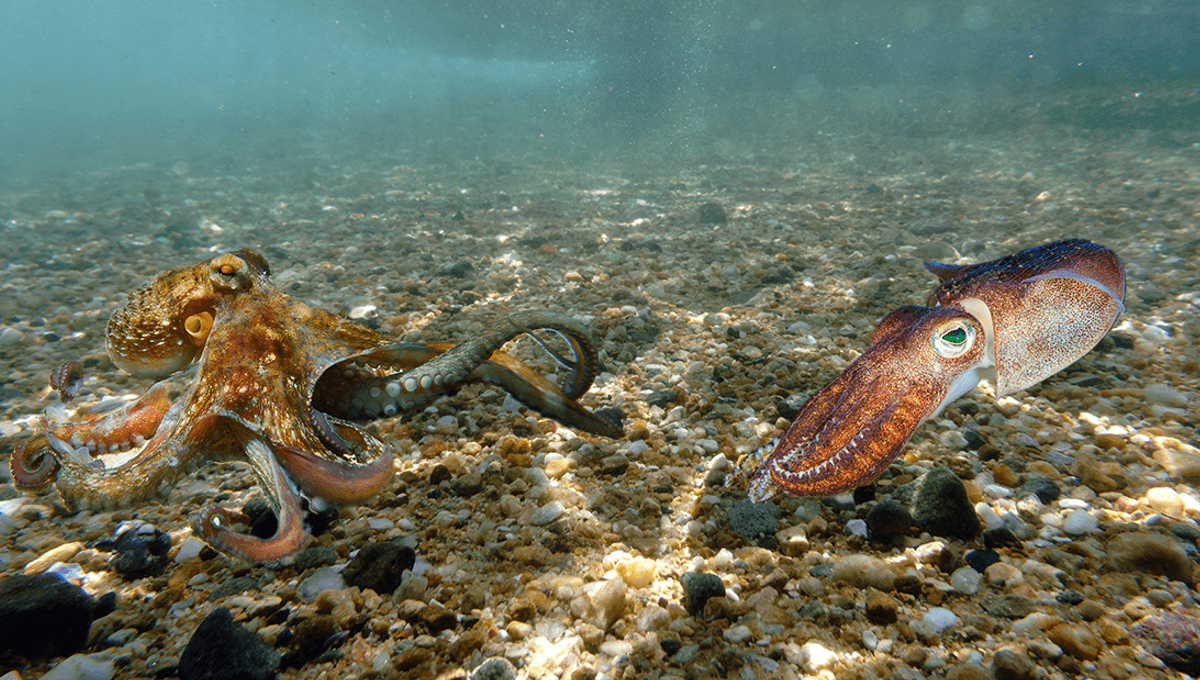
Let’s dive right into the weird world of underwater armed beasties. Octopuses and squids both belong to the marine mollusk class called Cephalopoda, with around 300 species of each. Cephalopod means “head-footed” as these animals have no feet, but can you tell all those tentacles apart? We break down the difference between these fascinating and surprisingly intelligent animals.
How many arms do octopuses have?
Let’s start with the suckers. Octopuses have eight arms covered in suckers that are highly flexible and strong. They can allow the octopus to “walk” along the bottom of the sea floor, catch prey and manipulate objects. These eight arms are especially useful for flinging shells at your octopus enemies.
Physically, octopuses look quite different to squids, with a much bigger, more rounded head. They also have rectangular pupils on their large eyes.
Octopuses are solitary creatures that live predominantly on the seafloor, except in areas like Octopolis, and they have a lifespan of around one to three years.
To breed, male octopuses use a specialized arm called the hectocotylus to transfer sperm to the female, who will lay her eggs in a den and then guard them until they hatch.
How many arms do squids have?
Squids also have eight arms but they also have two tentacles. Their heads, unlike an octopus, have two fins. Squids also have a backbone-like structure called a pen, while octopuses are entirely bone- and shell-less. Depending on the species, squids can be less than an inch in size, or the largest giant squid can reach 13 meters (43 feet) according to the Smithsonian. Squids typically have a longer lifespan, living between nine months and five years.
While squids can be solitary, most species live in large groups in the open ocean – they even breed together in these groups. Unlike the octopus, most squids do not offer any parental care to their eggs, which are left to fend for themselves in the ocean.
Both squids and octopuses can change color thanks to specialized cells called chromatophores in their skin. Similarly, both squids and octopuses can produce ink, usually as a defense mechanism to escape from predators.
What is the plural of octopus?
The word “octopus” is a Latinized form of the Greek word “októpus”, meaning “eight foot”. “Octopi”, using the Latin suffix as a plural, is the oldest form of the plural, but the modern plural is generally “octopuses”.
For the word “squid”, just like for fish, the plural is “squids” if you are referring to more than one species, or “squid” if you mean more than one individual of the same species.
Source Link: Octopus Vs Squid: Do You Know The Difference?